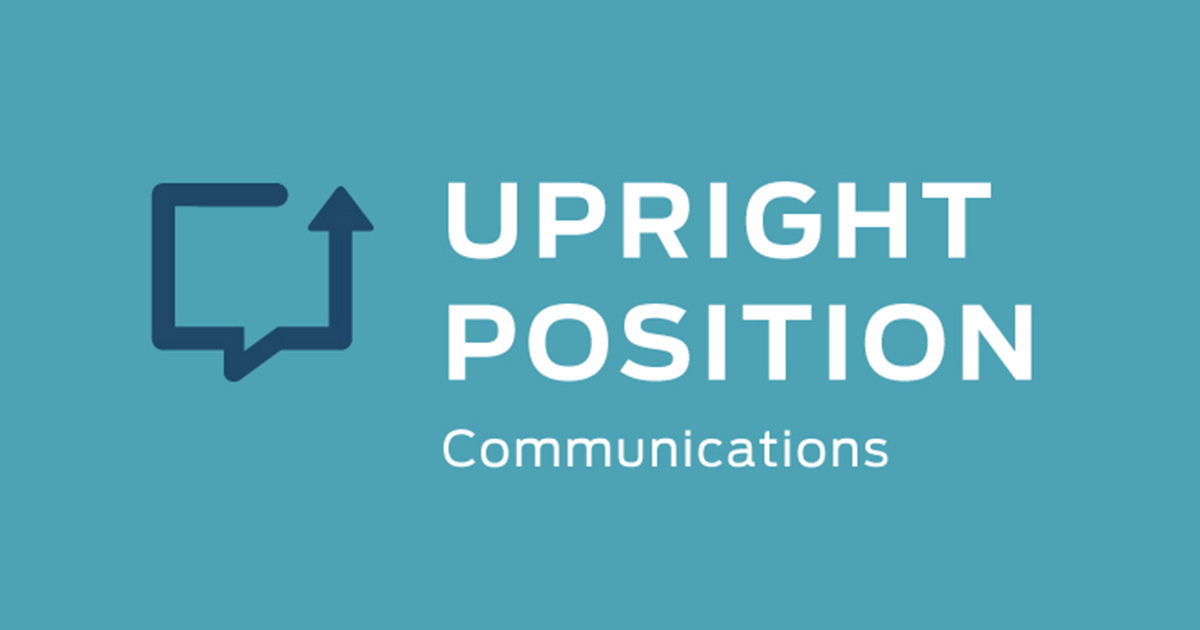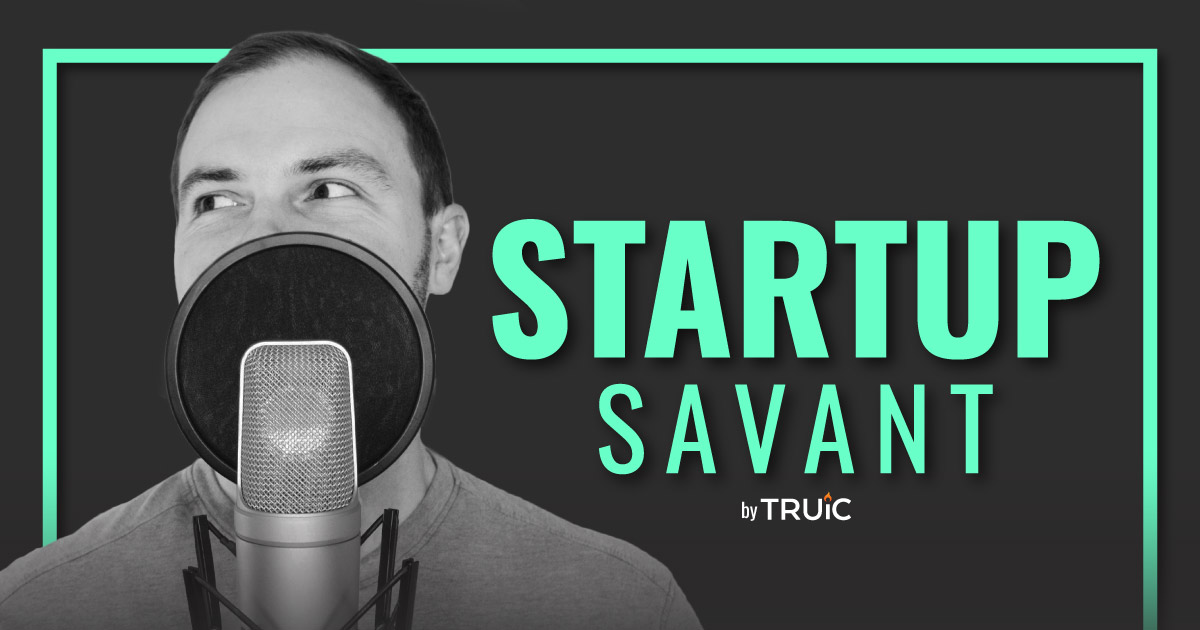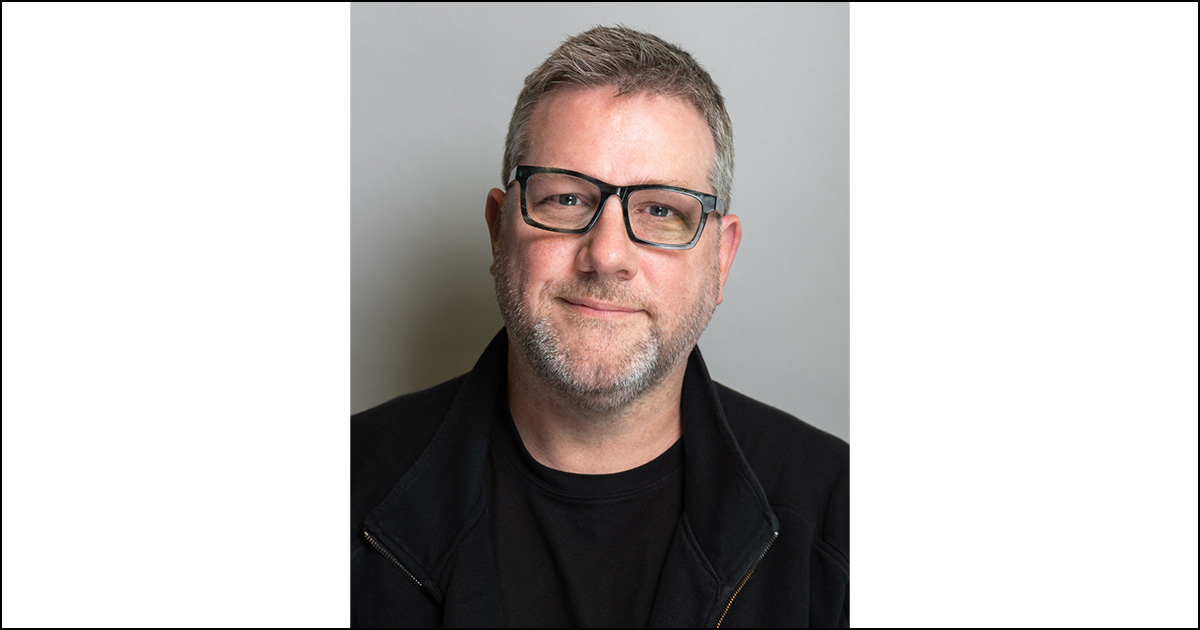Upright Position Communications Profile

Last Updated: By TRUiC Team
Upright Position Communications is a public relations (PR) firm that specializes in IPO-centric PR strategies.
Interview With Paul Wilke
Describe your product or service & the problem it's solving:
“We’re a PR firm that solves what we like to call “the triangle of dysfunction,” addressing the needs and speaking the language of clients, journalists and traditional (and untraditional) PR professionals.”
How did you come up with and validate your startup idea? Tell us the story!
“I had just wrapped up working in-house at Splunk, where we had just finished working on their IPO, which had followed work I had done a few years earlier in-house at Visa, working on PR and communications around their IPO, which at the time was the US’s largest public offering. After working on both of those, I realized that I enjoyed working on IPOs and wanted to create a company that could harness that experience and excitement, not just for companies going through IPOs, but also for companies that were on an upward trajectory and needed a communications infrastructure to go along with that. That was at the heart of what I tried to create with Upright. I also realized that there were a lot of things in PR that I didn’t like doing: the puffery/bureaucracy, the games agencies play with clients on billing and teams along with the kowtowing. Clients, PR people and journalists speak different languages and have different needs - that’s what I call the triangle of dysfunction. My goal was to soften each point of the triangle in a way that, strategically, all three parties could get what they wanted, meet their goals and work efficiently with each other. As an aside, those of us in the PR industry serve our clients, but we also serve journalists…so much so that they’re probably more important to us than our clients are. As the middle-man, we have to preserve our integrity so that we can effectively serve both audiences.”
How is your startup funded, and what advice do you have for other founders seeking funding?
“We’ve been bootstrapping from the beginning. We’ve had a couple of acquisition offers over the years, but in the end, we decided the best path was to go it independently…it serves our clients better, I think, and serves my and our employees' work-life balance.”
Feeling inspired? Learn how to launch your company with our guide on how to start a startup.
How big is your team, and what qualities do you look for when hiring new employees?
“We have a team of ten people: full-time, part-time and contractors on occasion. One of the things that’s unique to Upright is that we’ve had a work from home structure since the beginning: Before the pandemic, during the pandemic and after the pandemic, so I’ve found that we need people who can work independently and are confident in their abilities. The way we work isn’t cut out for everyone, but I’ve found that ex-big PR people, ex-in house PR execs and ex-journalists tend to thrive on our little island. PR is a funny business when it comes to hiring. It’s almost a rule of thumb that for every two people you hire, one of them flames out spectacularly. I’ve seen that happen at big PR agencies, in-house and even with us. Having seen that and having learned that has really helped refine our recruitment and hiring process. There’s a certain zen to knowing that for every two people you hire, one just isn’t going to work out - it’s not you, it’s not them…it’s just how it is.”
Who is your target market? How did you determine this, and what strategies did you use to reach and engage them?
“It’s funny, what started as our target market isn’t where we are today. My background is in journalism first, then I’d say my areas of expertise (when I started Upright) were IPO communications, crisis communications and PR around the travel and tourism industry. It’s that latter area that inspired the company name: Upright Position Communications, “upright position”, as in “Please fasten your seatbelts and return your tray table and seat to its full upright position.” It’s one of those “if you know, you know”, but if you don’t, the name works.
Anyway, we started Upright as a firm focused on IPO PR and travel and tourism PR. The latter didn’t get ANY traction because we were based in Silicon Valley in the midst of the 2nd (or 3rd, depending on who’s counting) tech boom, so we quickly pivoted to IPO PR and strategic communications for late-stage startups that either had no communications infrastructure or a comms infrastructure that wasn’t quite in line with their trajectory.
For the former, I’m proud/amused/amazed to say Twitter was directly responsible for our very first client, a very large tech IPO. On our first day of operations, I set up Tweetdeck (which was a great platform for monitoring tweets) to highlight any tweets about IPO PR, IPO communications, etc. And about an hour after I set that up, it captured a tweet by someone looking for an expert in IPO PR. That was our first client.”
What's your primary marketing strategy?
“Fortunately, knock on wood, word of mouth. Anytime I’ve actively tried to do formal bizdev, it’s never worked, but the good word of people in our network, current clients, past clients and friends has kept business sustainable for us.”
What has been your most successful marketing campaign, and why do you think it worked so well?
“I’d go with the Twitter monitoring story that I mentioned earlier, but one thing we’ve been doing of late is instructional videos and content we’ve been posting on our website and on YouTube and LinkedIn that highlights some of the PR basis…what to do, what not to do, our pet industry pet peeves and our guiding principles. I think that’s something that sets us apart from other agencies, especially with regard to what we tolerate and don’t tolerate. PR is a convenient whipping boy for many companies and we’ve worked hard to change the perception that PR is a necessary evil. Good, strategic PR is necessary and PR for PR’s sake is never a great idea, but I’m a firm believer that for every business problem, there’s a communications solution. We want clients that either understand that or are open to that approach.”
What do you consider to be your company's biggest competitive advantage, and how do you maintain it?
“I’m very proud of the fact that several clients over the years have said to us that they love working with us because they feel like they’re our only client. That’s high praise to me, and something I don’t take for granted. The other thing I’m very proud of is that when we don’t get a particular piece of business, on many occasions, those companies have come back to us 3, 6, 12 months later saying they weren’t happy with the agency they selected and come back to us. That speaks volumes.
We’ve had clients we’ve resigned from whose employees left for other companies that have hired us. I like to say that we’re stubborn, but for good reason. PR firms are hired for their counsel and skills. I maintain if you let them do what they do best, they’ll serve you well.
To ensure we maintain that competitive advantage, I think we’re simply true to ourselves. We call out BS when we see it, we give counsel that’s honest and we try not to be “yes” people. PR professionals, by nature, are people pleasers. It’s hard for us to not say “how high?” when a client tells us to jump. What separates us from the competition is that we don’t necessarily say “how high” when a client tells us to jump. To mix metaphors, we kick the tires and make sure we’re thinking about things strategically instead of just tactically. For example, I visibly bristle when a client says “let’s do a press release on X”. A press release is a tactic (sometimes a terrible one at that), not a strategy. Instead of jumping straight to an ineffective tactic as a solution, we try to step back and build thought, creativity and strategy around an issue.”
What were the biggest challenges you faced in the early stages of building your startup, and how did you overcome them?
“Upright started as a one-man band (me). I was lucky in the fact that the business was always there, but I often didn’t realize I needed help. Thankfully my wife, Audra, helped me see the forest through the trees in that regard. She walked into my office one day and saw that I was struggling with billing (I’m a “write ideas on a cocktail napkin” kind of person, so billing is definitely not my forte) at a time where I should have been working on what I do best (strategy, writing, media outreach, etc.), and she said to me, “your time is better spent on what you do best”. So I brought her on as head of operations and with that, I had time to succeed at what we did best, grow the business and bring talented people on.”
What is something that surprised you about entrepreneurship?
“That you learn from your mistakes more than you learn from your successes. Just about every change we make operationally or functionally came out of something that didn’t work. A bad client stiffs us for $60,000? We learned how to restructure our contracts and payables. A media event didn’t quite go as planned? Let’s do it differently [next] time. Successes are great, but it’s failure that really moves the needle.”
What is your #1 piece of advice for startup founders?
“Go with your instincts. If you think a client is going to be a nightmare, they’re going to be. If something seems too good to be true, it probably is. If your instinct is to reach out for advice (or help), do it.”
Tell Us Your Startup Story
Are you a startup founder and want to share your entrepreneurial journey with our readers? Click below to contact us today!
More on Upright Position Communications

Unveiling the Truth About PR and Its Untapped Potential with Upright
Paul Wilke, founder of Upright Position Communications joins the podcast to discuss the relationship between PR and exiting.

Solving the ‘Triangle of Dysfunction’
Paul Wilke founded Upright Position Communications to facilitate better PR to IPO-focused startups, this is their origin story.






